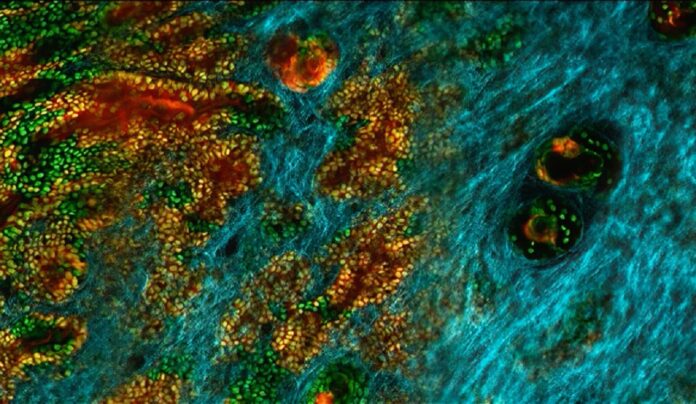Harnessing the power of healthy cells to suppress skin cancer formation is a promising approach in cancer research. Skin cancer, including melanoma, basal cell carcinoma, and squamous cell carcinoma, poses a significant health risk globally. Traditional treatments such as surgery, chemotherapy, and radiation therapy have limitations. New strategies are needed to combat this pervasive disease.
By leveraging the intrinsic capabilities of healthy cells, scientists and medical professionals are exploring innovative methods to prevent, inhibit, and even reverse the formation of skin cancer. This article delves into the emerging techniques and technologies that utilize healthy cells’ potential to suppress the development and progression of skin cancer, offering new hope in the fight against this formidable disease.
By studying the behavior of cells in wounded and non-wounded skin, researchers at Yale University have made an intriguing discovery. They found that injuries to the skin trigger a signaling cascade that promotes the expansion of healthy cells while keeping mutated cell growth in check. This surprising finding challenges conventional thinking about cancer initiation, suggesting that acute injury may counteract tumorigenesis.
The research by the Greco Lab at the Yale School of Medicine opens new possibilities for developing therapeutics that stimulate cell signaling pathways to enhance the selective proliferation of healthy cells and suppress oncogenic growth. Current cancer treatment strategies often target proliferative cells, potentially hindering the natural defense mechanisms of mosaic tissue against tumor cells. The findings provide valuable insights for future innovative approaches in cancer therapy.
Lead author Sara Gallini, a research associate in the Greco Lab at the Yale School of Medicine (YSM), said, “This finding completely changes our way of thinking about cancer initiation and suggests that acute injury might counteract rather than promote tumorigenesis.”
The study conducted by the Greco Lab at Yale University reveals a previously unrecognized mechanism by which healthy cells in wounded skin can counteract the formation of skin cancer. Harnessing the power of these healthy cells presents a promising approach to cancer treatment, highlighting the potential for innovative therapeutics that stimulate cell signaling pathways to selectively promote the proliferation of healthy cells while suppressing oncogenic growth.
Further research is needed to understand this signaling cascade’s intricacies fully and to develop targeted therapies that can effectively utilize the body’s natural defense mechanisms against cancer.
Journal Reference:
- Gallini, S., Annusver, K., Rahman, NT. et al. Injury prevents Ras mutant cell expansion in mosaic skin. Nature. DOI: 10.1038/s41586-023-06198-y
